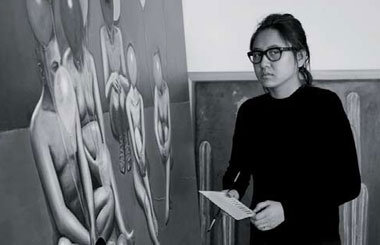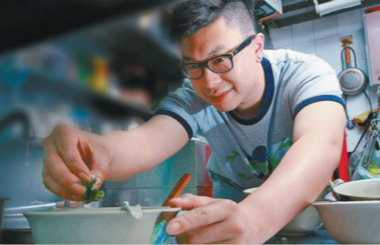New China-led bank 'will be inclusive'
Updated: 2016-01-29 07:52
By Fu Jing(China Daily Europe)
|
|||||||||||

"Some may say I like micromanagement but at the first stage of launching such an institution, I have to know every detail. Once we put our articles of agreement, policies, regulations and sound governance in place, we can rely on professionals for implementation."
While absorbing the experiences and lessons in conceptualizing President Xi Jinping's idea of setting up a multilateral development bank, Jin says the AIIB is in many ways different from the World Bank and the Asian Development Bank, where he has a long track record.
First, Jin says, the AIIB is inclusive and open, and China has no intention of exercising its "veto power" despite the fact that it has that right because of the country's economic size and shareholding.
"There are still many countries on the waiting list (to join the bank) and when the new members come in, China's voting power will be diluted. As such, the de facto veto power will be gone over time," says Jin.
AIIB was set up in January in Beijing after two years of negotiations to decide membership, governance structure and basic policy stance. Members agreed on crucial decision-making processes by introducing a "fixed" special majority, which consists of two-thirds of the members representing three-fourths of voting rights.
China, the largest AIIB shareholder, has 26.6 percent of voting rights, which are determined by the size of its economy, says Jin. "We will not increase the special majority to just keep China's veto power intact."
Jin says this is a major difference compared with older institutions such as the World Bank, in which the United States has always retained veto power by amending the articles of agreement, increasing the special majority when its voting power went down as new members joined.
When the World Bank began operations, the US had 25 percent voting rights, which gave it veto power. And when the voting rights decreased to 20 percent, the World Bank increased the special majority to 81 percent. And now with its voting rights at 16.6 percent, the special majority is 85 so that the US continues to wield veto power.
"In the new era of changing international circumstances, China should not approach it this way," says Jin. "This is how China shows its sincerity."
To show the bank's inclusiveness and openness, Jin says, China always asks three questions to frame the mechanisms for decision-making.
"If most of the shareholders don't like it, why do you insist? If most of the countries oppose it, why do you want to do it? And if most countries like it, why do you oppose it?"
Jin says when China mooted the idea of setting up the AIIB, there were many doubts and concerns, but it is now welcomed by many countries. "This is the process of China gaining credibility and building up mutual trust by collective consultation and making decisions through democratic approaches."
He says the inauguration of the AIIB is just the first step in a long journey, and the most important thing is to turn plans into reality by meeting the infrastructural demands of countries in need.
He says the AIIB aims to recruit 100-150 professionals worldwide this year. "There is no rush to expand and we need to hunt for qualified talent and experts carefully. The AIIB currently has about 50 staff members.
Related Stories
AIIB chief rules out China veto power 2016-01-27 05:01
Former UK minister tipped to be named an AIIB vice president, FT says 2016-01-26 18:48
AIIB a test for China's new international role 2016-01-22 08:39
AIIB chief vows to run clean, lean, green institution 2016-01-22 08:37
AIIB attracts global investors
2016-01-20 08:46
Today's Top News
China manufacturing activity contracts for 6th month
Sanders plays down Clinton's hold over voters in Iowa
New China-led bank 'will be inclusive'
Horizons expand for Chinese companies in France
Negotiating political transition in Syria 'possible'
Man arrested with handguns at Disneyland Paris
Record number of Chinese tourists visited UK in 2015
Foreigners fill in Spring Festival courier gap
Hot Topics
Lunar probe , China growth forecasts, Emission rules get tougher, China seen through 'colored lens', International board,
Editor's Picks

|

|

|

|

|

|






